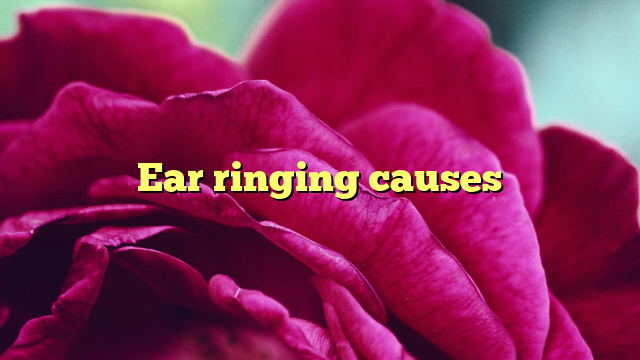Ear ringing, also known as tinnitus, is a common condition that affects millions of people around the world. While it is often associated with loud noise exposure or age-related hearing loss, there are several surprising factors that can lead to ear ringing. In this article, we will explore some of these factors and their impact on tinnitus.
Factors That Can Lead to Ear Ringing
1. Stress and Anxiety
Stress and anxiety are known to exacerbate tinnitus symptoms. When you are stressed or anxious, your body releases stress hormones that can increase the intensity of the ringing in your ears. Finding ways to manage stress and anxiety, such as relaxation techniques or therapy, can help reduce tinnitus symptoms.
2. Medications
Some medications, such as certain antibiotics, antidepressants, and painkillers, can cause tinnitus as a side effect. If you suspect that your medication is causing or worsening your tinnitus, consult with your healthcare provider to discuss alternative options.
3. Jaw Problems
Temporomandibular joint (TMJ) disorders, which affect the jaw joint, can also lead to ear ringing. The close proximity of the TMJ to the ear can cause pressure on the structures that contribute to tinnitus. Treating TMJ disorders through jaw exercises or dental devices may help alleviate tinnitus symptoms.
4. High Blood Pressure
High blood pressure can affect blood flow to the inner ear, leading to tinnitus. Managing your blood pressure through lifestyle changes, such as diet and exercise, can help reduce tinnitus symptoms in some cases.
5. Allergies
Allergies can cause congestion in the nasal passages and the Eustachian tube, which connects the middle ear to the back of the throat. This congestion can impact the pressure in the middle ear, leading to tinnitus. Managing your allergies with medications or allergy shots may help reduce tinnitus symptoms.
Conclusion
While ear ringing can be a challenging condition to live with, understanding the various factors that can contribute to it can help you better manage your symptoms. By addressing stress, medication side effects, jaw problems, high blood pressure, and allergies, you may be able to reduce the intensity of your tinnitus and improve your quality of life.
FAQs
Q: Can tinnitus be cured?
A: There is currently no cure for tinnitus, but various treatments and management strategies can help alleviate symptoms.
Q: Is tinnitus a sign of a serious medical condition?
A: In some cases, tinnitus can be a symptom of an underlying medical condition, such as high blood pressure or TMJ disorders. It is important to consult with a healthcare provider to rule out any serious causes of tinnitus.
Q: Can stress make tinnitus worse?
A: Yes, stress and anxiety can exacerbate tinnitus symptoms. Finding ways to manage stress, such as relaxation techniques or therapy, may help reduce the intensity of tinnitus.
Unlock the Secret to a Peaceful Life



